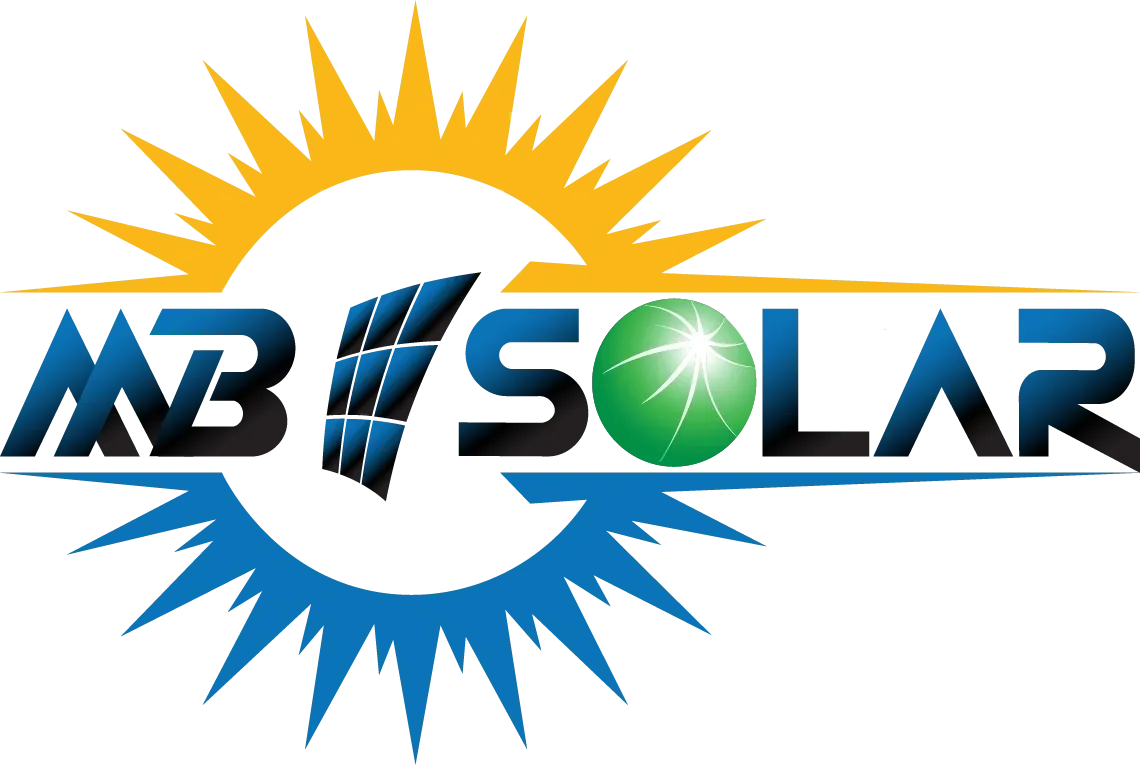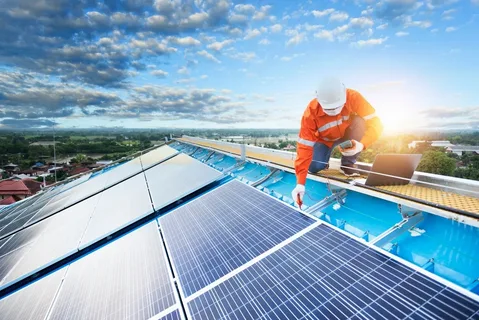As solar energy becomes more common for homeowners and businesses, ensuring that your solar system is working efficiently and safely is crucial. One of the most important steps in maintaining your solar energy system is undergoing a solar inspection. A solar inspection is an evaluation of your solar panel system to ensure it is functioning properly and meets all safety and efficiency standards. While solar panels are designed to last for decades, regular inspections are key to making sure they continue to perform optimally.
What Is a Solar Inspection?
A solar inspection is a comprehensive review of your solar energy system conducted by a certified professional. This inspection evaluates various components of the system, such as the solar panels, inverter, wiring, and battery storage (if applicable). The goal is to ensure that the system is operating safely, efficiently, and according to the manufacturer’s specifications.
A typical solar inspection includes several steps. First, the condition of the solar panels is assessed to check for any cracks, dirt, or other issues that could affect performance. Second, the wiring and connections are inspected for signs of wear or damage, and loose connections are tightened. Third, the inverter function is evaluated to ensure that it is converting solar energy into usable electricity properly. If a battery storage system is in place, the technician will also check its efficiency in storing and discharging energy. Finally, the system will be reviewed for compliance with safety standards, ensuring it meets all local building and electrical codes.
Why Is a Solar Inspection Important?
A solar inspection is important for several reasons. It helps to identify potential issues before they become major problems, ensuring that your system operates at peak efficiency. Additionally, it ensures that the system remains safe and meets any legal or regulatory requirements.
Ensuring Optimal Performance
The primary reason for having a solar inspection is to ensure your system is performing as expected. Over time, various factors such as dirt, debris, or even shading can reduce the efficiency of solar panels. A professional inspection will identify these issues and recommend the necessary actions to restore full functionality.
By regularly inspecting your solar system, you can identify problems early, prevent unnecessary downtime, and make adjustments that can boost energy output. For example, an inspector may identify panels that have become misaligned due to a storm or wiring that has been damaged by pests. Catching these issues early ensures that you are maximizing the energy your solar system produces.
Extending the Lifespan of Your System
Solar panels are a significant investment, and most homeowners want to get the most value from them over the years. Regular inspections are one of the best ways to extend the lifespan of your solar system. Routine maintenance checks ensure that any wear and tear is detected and addressed before it leads to costly repairs or system failures.
Certain components, such as the inverter or battery, may have a limited lifespan. An inspection will help assess whether these parts need replacing, so you can plan ahead and avoid unexpected costs. Additionally, an inspection can help detect issues with the roof or structure supporting the panels, ensuring that no part of the system is under unnecessary stress.
Preventing Safety Hazards
Safety is one of the most critical aspects of any energy system, and solar panels are no exception. Faulty wiring, damaged panels, or improper installations can lead to electrical fires, electrocution, or other safety hazards. A solar inspection helps to identify and correct these risks, ensuring that the system remains safe to operate.
Certified solar inspectors are trained to spot potential safety issues that an untrained eye may miss. They will check for problems such as loose or damaged wiring that could create a fire risk, panel misalignment that could lead to improper grounding, inverter malfunctions that may cause electrical faults, and improper mounting that could result in panels falling or damaging property.
Compliance with Local Regulations and Warranty Requirements
Many areas require solar systems to comply with local building and electrical codes. A professional inspection ensures that your system meets these legal requirements, helping to avoid fines or legal complications. Additionally, some solar manufacturers or installers require regular inspections to maintain warranties. Failure to conduct inspections could void your warranty, leaving you responsible for any future repairs.
By adhering to local regulations and maintaining a proper inspection schedule, you protect your investment and stay within the bounds of the law. This is especially important when selling your property, as prospective buyers may require proof of a properly inspected and compliant solar system.
Maximizing Energy Savings
The more efficiently your solar system operates, the more money you can save on your energy bills. A system that is not working at its full potential may not produce enough energy, forcing you to rely more on the grid. Regular inspections allow you to make adjustments or upgrades to your system, ensuring it is generating the maximum amount of electricity possible.
For instance, cleaning the panels, recalibrating the inverter, or upgrading certain components can result in significant energy savings over time. Regular inspections provide the opportunity to make these improvements before small issues become large problems that could affect energy production.
Increasing Property Value
Solar panels can increase the value of your property, and having an up-to-date inspection report can further boost that value. When potential buyers see that your system is regularly inspected and maintained, they’ll have more confidence in the longevity and functionality of the system. A well-maintained solar energy system is a selling point for many buyers, as it signals that the home or business is energy-efficient and environmentally friendly.
If you’re planning to sell your property, providing evidence of regular solar inspections can help you negotiate a higher price. It also provides transparency, making it easier to address any concerns buyers may have about the solar system’s condition.
How Often Should a Solar Inspection Be Performed?
While the frequency of solar inspections may vary depending on your location and system size, it’s generally recommended to have an inspection performed at least once a year. Additionally, after severe weather events such as storms, hail, or heavy winds, it’s a good idea to have your system checked to ensure it has not been damaged.
For solar systems with battery storage, inspections may need to occur more frequently, as batteries can degrade over time and may require additional maintenance. It’s always a good idea to follow the manufacturer’s recommendations for maintenance schedules and ensure your system is inspected by a certified professional.
What to Expect During a Solar Inspection
During a solar inspection, a certified technician will conduct a thorough examination of your system. Here’s a breakdown of what to expect:
Visual Inspection:
The technician will check the panels for physical damage, dirt buildup, and signs of wear and tear. They will also check the wiring and connections for any visible issues.
System Performance Check:
The technician will test the inverter and battery (if applicable) to ensure they are operating at optimal efficiency. This may include checking the output and comparing it to the expected performance based on your system’s design.
Roof and Mounting System Evaluation:
The roof where the panels are installed will be inspected to ensure there is no structural damage, and the mounting system is secure.
Safety and Code Compliance Check:
The technician will ensure that your system adheres to local electrical codes and regulations. This includes checking for proper grounding and circuit protection.
Conclusion
A solar inspection is an essential part of maintaining your solar energy system. It ensures optimal performance, extends the lifespan of your panels, and helps prevent safety hazards. Regular inspections also help you comply with local regulations and keep your warranty intact. By investing in a solar inspection, you can maximize your energy savings, increase your property value, and enjoy the full benefits of your solar system for years to come.
FAQs
How much does a solar inspection cost?
The cost of a solar inspection typically ranges from $150 to $400, depending on the size and complexity of your system. Some companies may offer free inspections as part of a maintenance package.
How long does a solar inspection take?
A solar inspection usually takes between 1 to 3 hours, depending on the size of the system and the complexity of the inspection. Larger systems may take longer.
Can I inspect my solar system myself?
While homeowners can visually inspect their solar panels for obvious issues like dirt or debris, it’s recommended to hire a certified professional for a comprehensive inspection. They have the expertise to detect problems that may not be immediately visible.
Do solar panels need maintenance?
Solar panels generally require little maintenance, but they should be regularly cleaned and checked for damage. Having a solar inspection ensures your system remains in good condition.
Will a solar inspection affect my system’s warranty?
No, a solar inspection typically does not void your warranty. In fact, it can help ensure your system stays in good working order and may be required by some manufacturers.

